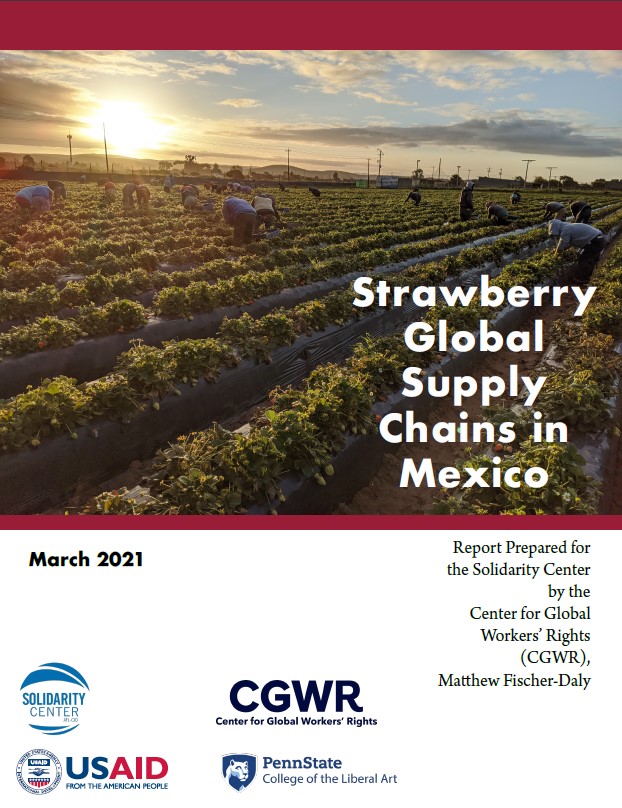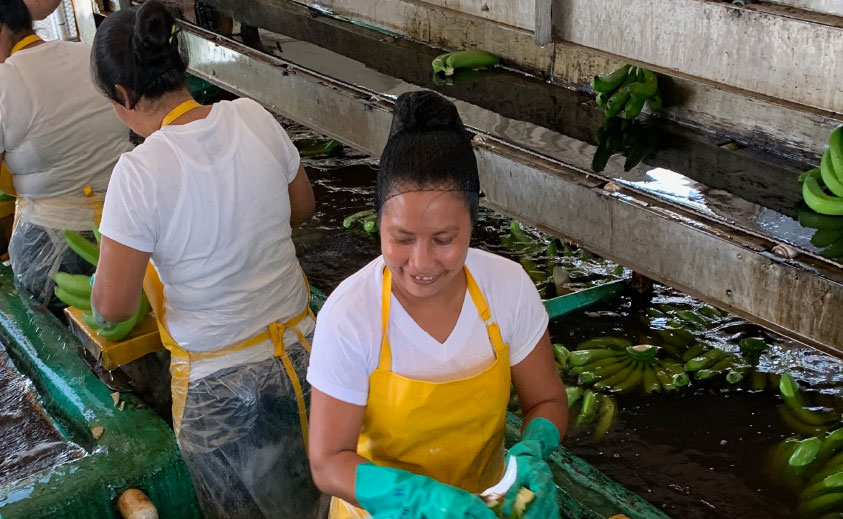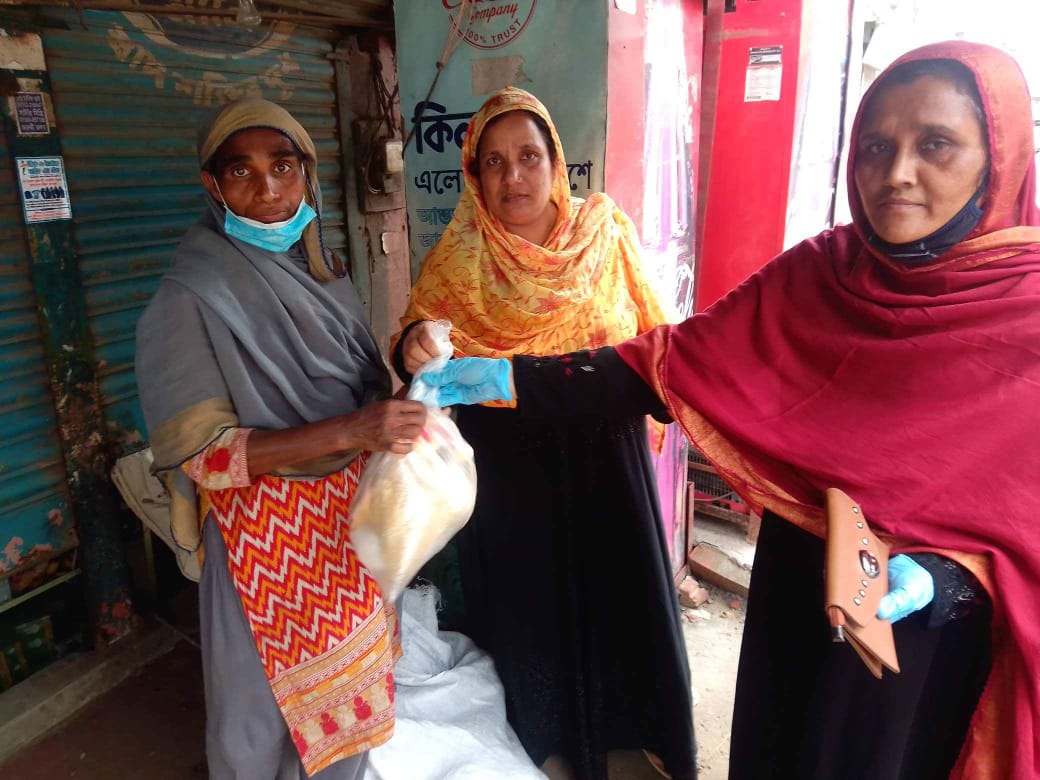The governments of Mexico and the United States have supported the growth of the Mexican berry sector by creating conditions for a cheap supply of labor and profit growth. Mexican field workers receive an estimated 12 cents per pound of strawberries sold in U.S....
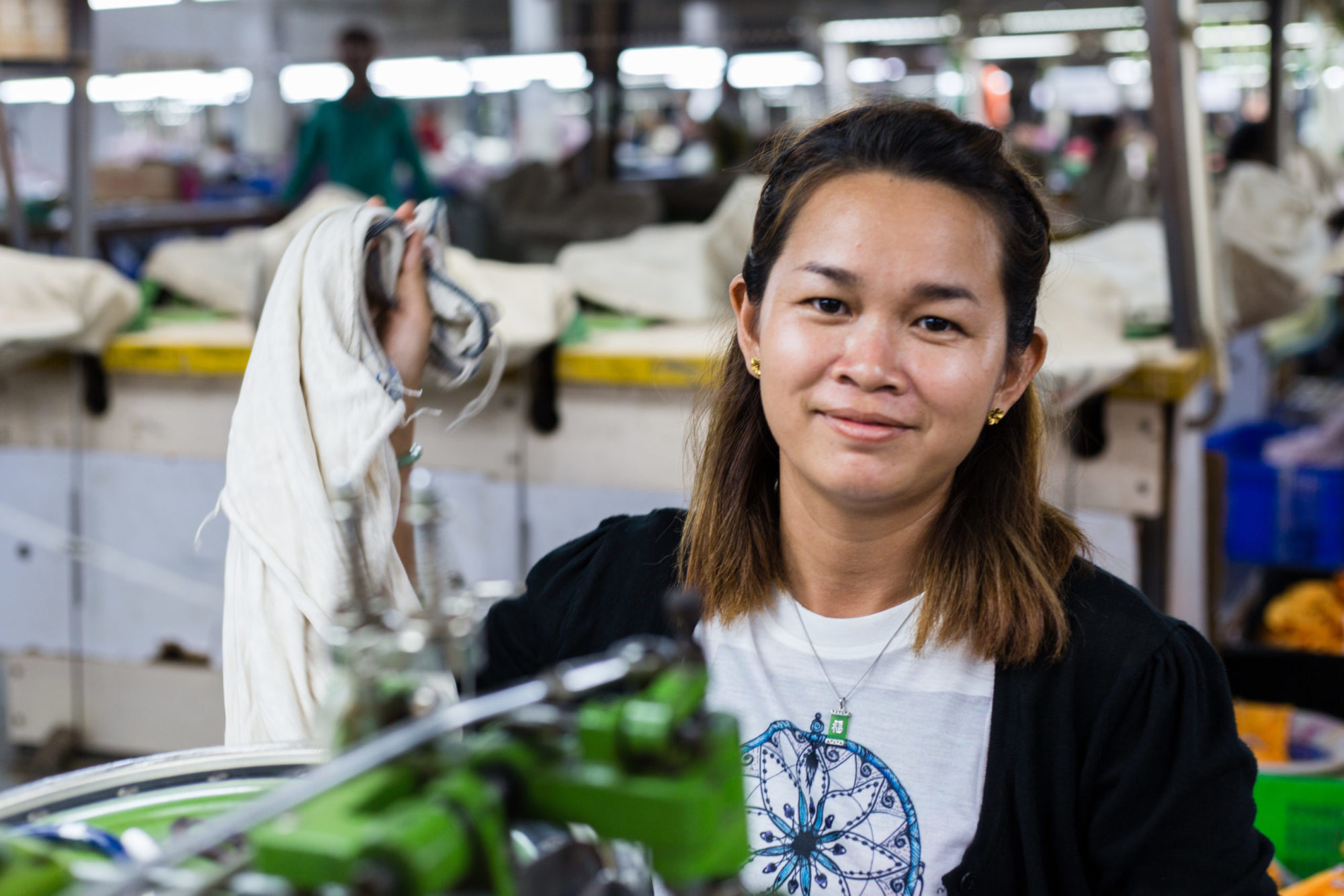
Heng Rithy, a garment worker in Cambodia, says her factory has good working conditions and she can support her family because workers have a union. Credit: Solidarity Center/Shanleystudio
The Union Difference in Guatemala Banana Plantations
Unionized workers on Guatemala banana plantations earn more, work fewer hours, face less sexual harassment, and have safer workplaces, including during the Covid-19 pandemic, according to a Solidarity Center report. (The report also is available in Spanish.) “What...
Solidarity Center Workers’ Empowerment Project in Bangladesh Pivots in COVID-19 Crisis
As garment factories shut down in Bangladesh during the novel coronavirus pandemic, leaving workers without wages or access to support services, unions and Worker Community Associations (WCAs) around the country rapidly shifted to address the crisis, with Worker...
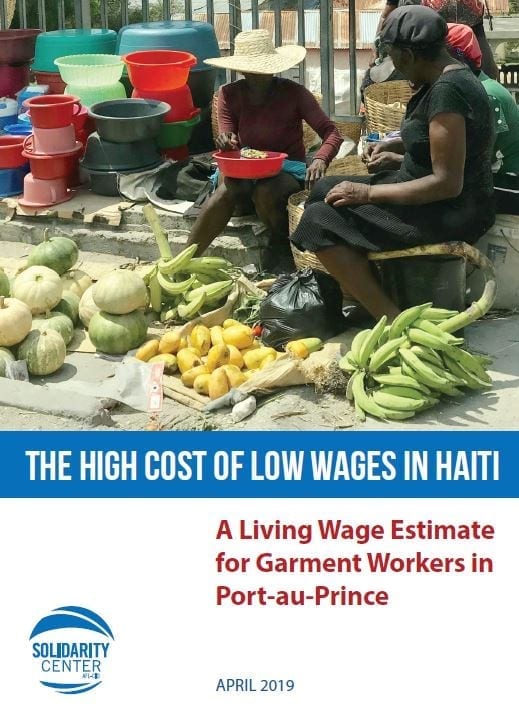
The High Cost of Low Wages in Haiti (2019)
Haitian garment workers face increasing difficulty in covering basic expenditures as prices soar while wages hover far below the cost of living. Download here in Creole. Download here in English. Download here in French.
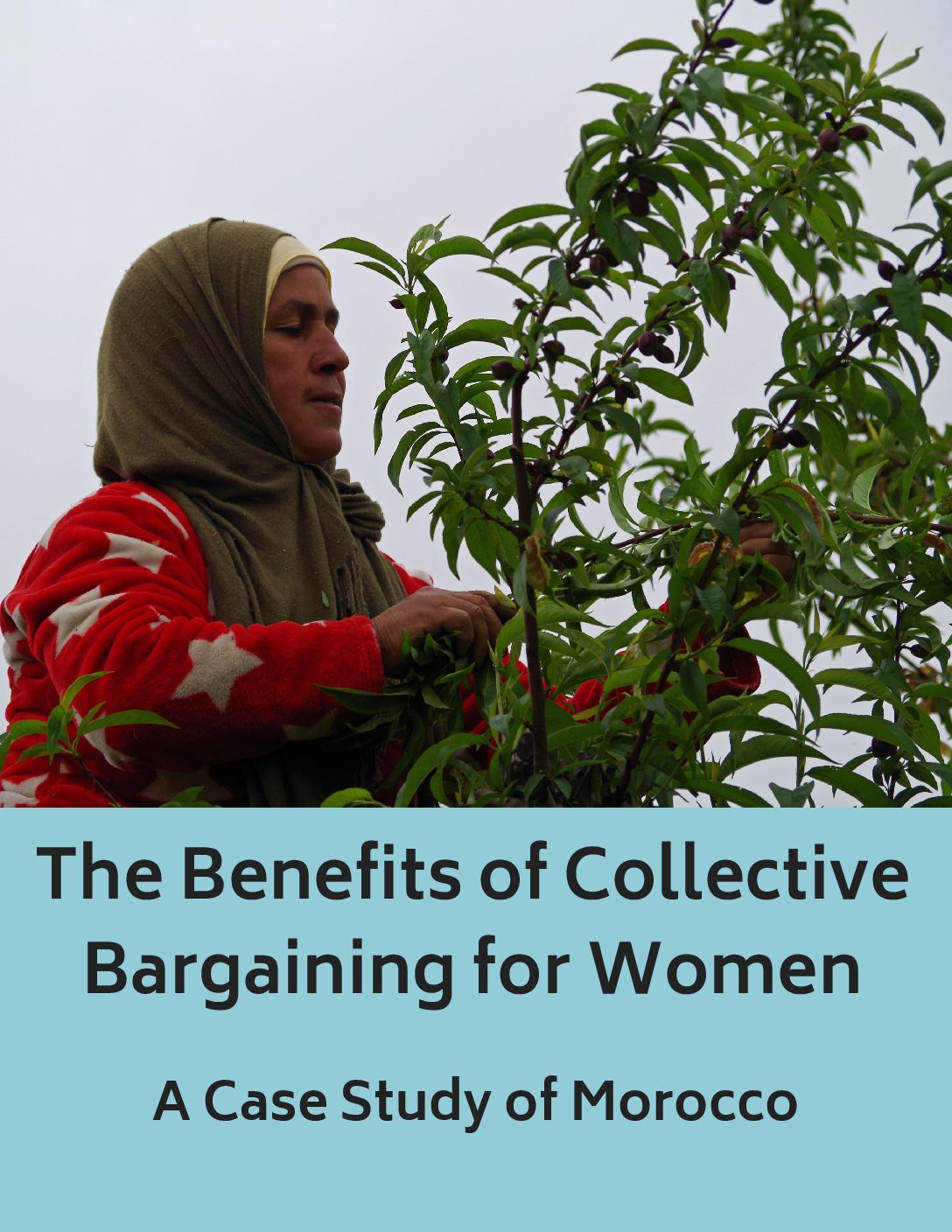
The Benefits of Collective Bargaining for Women: A Case Study of Morocco
This study by the International Center for Research on Women (ICRW) and Solidarity Center finds women workers in Morocco’s fertile Meknes region are making big gains in gender equality on the job through their union, the Confédération Démocratique du Travail (CDT)....
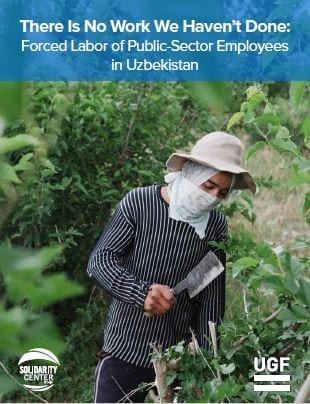
There Is No Work We Haven’t Done: Forced Labor of Public-Sector Employees in Uzbekistan
Although the government of Uzbekistan has made progress on ending child and adult forced labor in the cotton fields after more than a decade of international pressure, a new report finds that forced labor remains rampant in other arenas of Uzbek life, affecting...
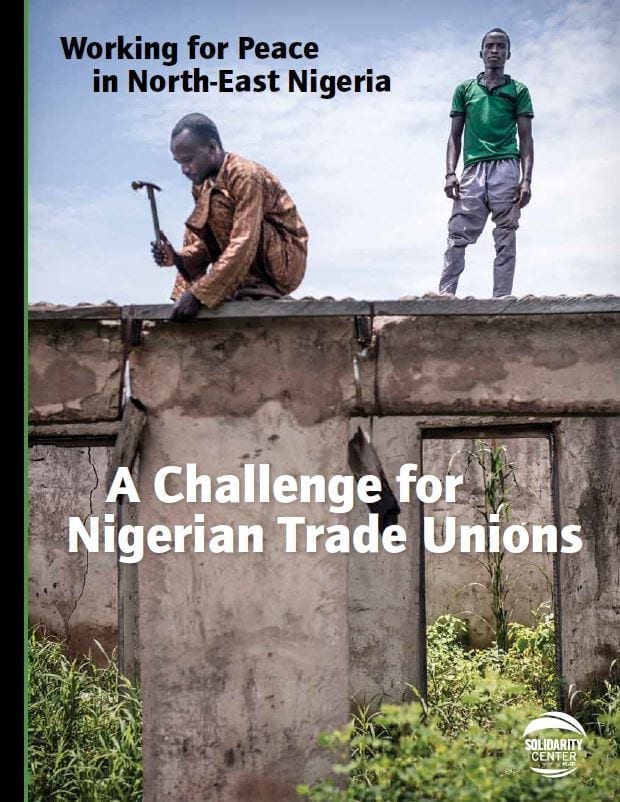
Working for Peace in North-East Nigeria
This report analyzes the impact of violence in North-East Nigeria, where teachers, health care professionals and civil servants were the victimized by insurgents targeting symbols of state authority. The report includes recommendations for government and worker...
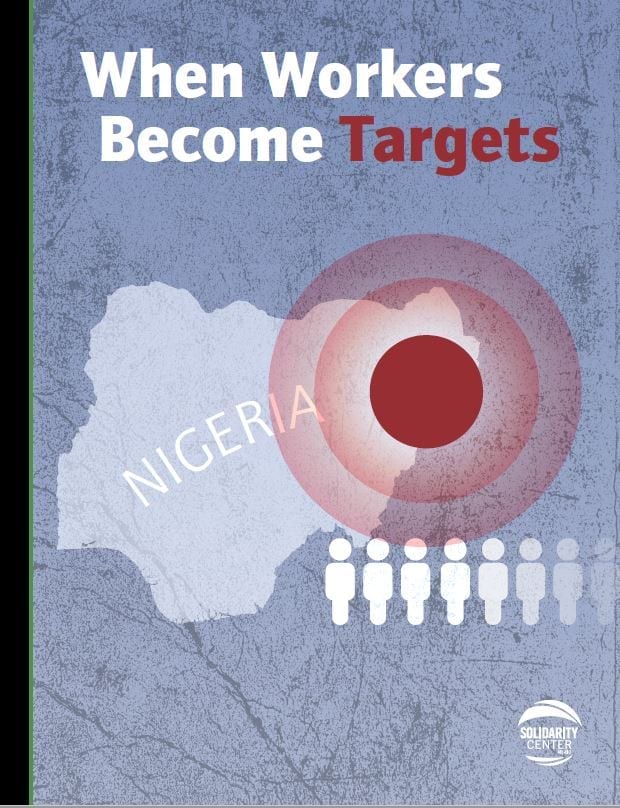
When Workers Become Targets: Nigeria
"When Workers Become Targets: Nigeria," is a collection of real-life experiences of workers, particularly women, during the Boko Haram insurgency in Borno State, North-East Nigeria, and how unions whose members suffered the greatest toll played a crucial role in the...
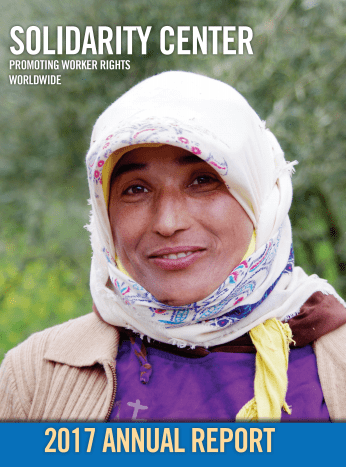
Annual Report 2017
Download here.

